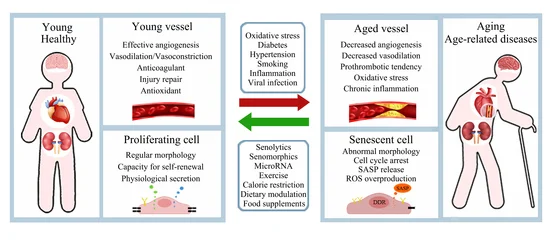Many individuals have a swallowing condition brought on by another medical condition. Any chronic disease that impacts the nervous system could lead to a swallowing disorder. Stroke and Parkinson’s disease are other known causes of swallowing difficulties. However, the aging process may be to blame for any problems a person is experiencing in this area.
Experts believe approximately 20% of men and women over 50 have difficulty swallowing. Most people have this difficulty by the time they reach the age of 80, and they may turn to SimplyThick on Instagram for tips on how to deal with it. As more people reach their senior years, the problem will likely increase in prevalence, so everyone should know how aging affects swallowing mechanisms and what can be done to overcome swallowing difficulties.
Vocal Cord Changes
Vocal cords may lose bulk and become more sensitive as a person ages. If they do, the airway loses some protection when the person swallows, and the material they are swallowing enters the lungs. If a person coughs after swallowing, this might be a sign that their vocal cords no longer provide protection. Aspiration pneumonia is a concern for these men and women.
Throat and Tongue Changes
The tongue and throat may lose bulk and strength as people age. The pharynx is designed to constrict from top to bottom when a person swallows. This helps move foods and liquids from the mouth to the stomach. When the action is incomplete or ineffective, the person might find that their food stays in their throat after swallowing, threatening their airway.
In addition, elderly people have longer, more dilated throats. When a younger person swallows, it takes approximately one second. As a person ages, this time increases and can be 20% or longer than a younger person’s swallow. The airway may not remain protected throughout the swallowing motion.
Esophageal Changes
A sphincter sits at the top of the esophagus. When a person eats, the sphincter must relax and open to allow foods and liquids to enter. As a person gets older, the size of this opening may decrease. They may find it hard to swallow solid foods or medications when it does.
These are only a few physical changes that may lead to swallowing difficulties in seniors. A person’s ability to smell changes over time, and the same holds for how they breathe as they swallow. Chronic diseases are also more common in senior citizens, and they can contribute to any swallowing disorders. Prescription medications many seniors take may lead to dryness, making swallowing challenging.
Seniors might find they can accommodate these physical changes and swallow without difficulty. The changes may come on gradually, so they don’t realize they’re compensating for them, or they might assume that the changes are a normal part of aging and they must live with them.
However, they should speak with their medical team about any noticed changes. The problem may worsen without treatment, so early intervention is essential. Furthermore, the doctor must rule out serious health issues that may lead to difficulty swallowing. They must be treated promptly for the best outcome.
Seniors with difficulty swallowing should talk with their medical team to learn coping mechanisms and strategies to help them stop this problem or slow its progression. Good oral health is an excellent starting point. Seniors should chew their food carefully and take small bites to help them move through the esophagus. In addition, seniors may tuck their chin down before swallowing to help protect the airway if they often cough while swallowing.
A doctor can order tests to determine the cause of the swallowing difficulty and create a treatment plan. With their help, seniors can eat a healthy diet safely once again. The treatment will address the specific problems they are facing and may include the use of thickeners, swallowing exercises, and other interventions. The goal is always to find the right treatment plan that will provide the optimal outcome for the patient.

